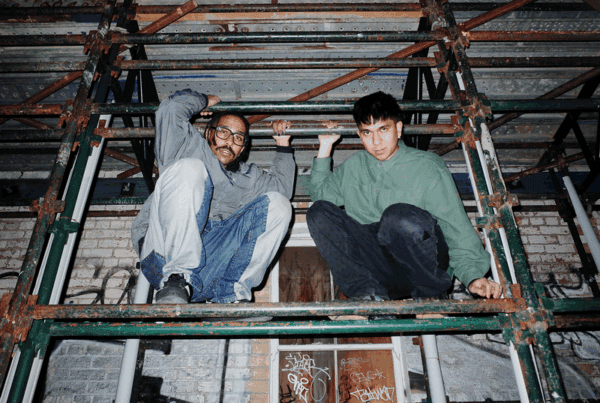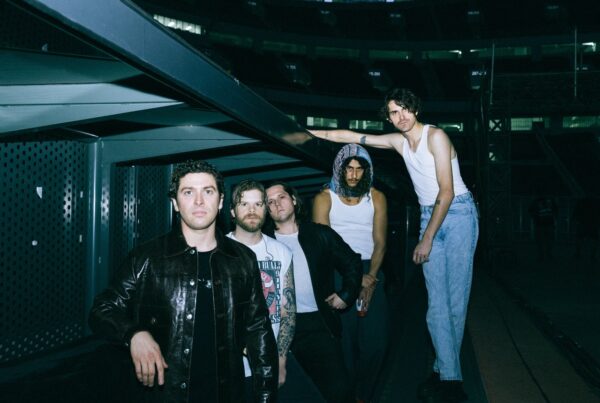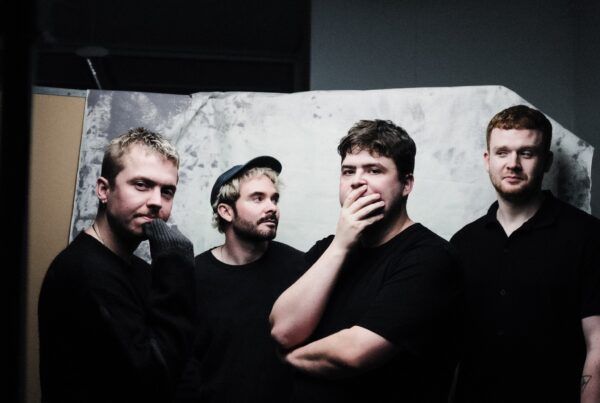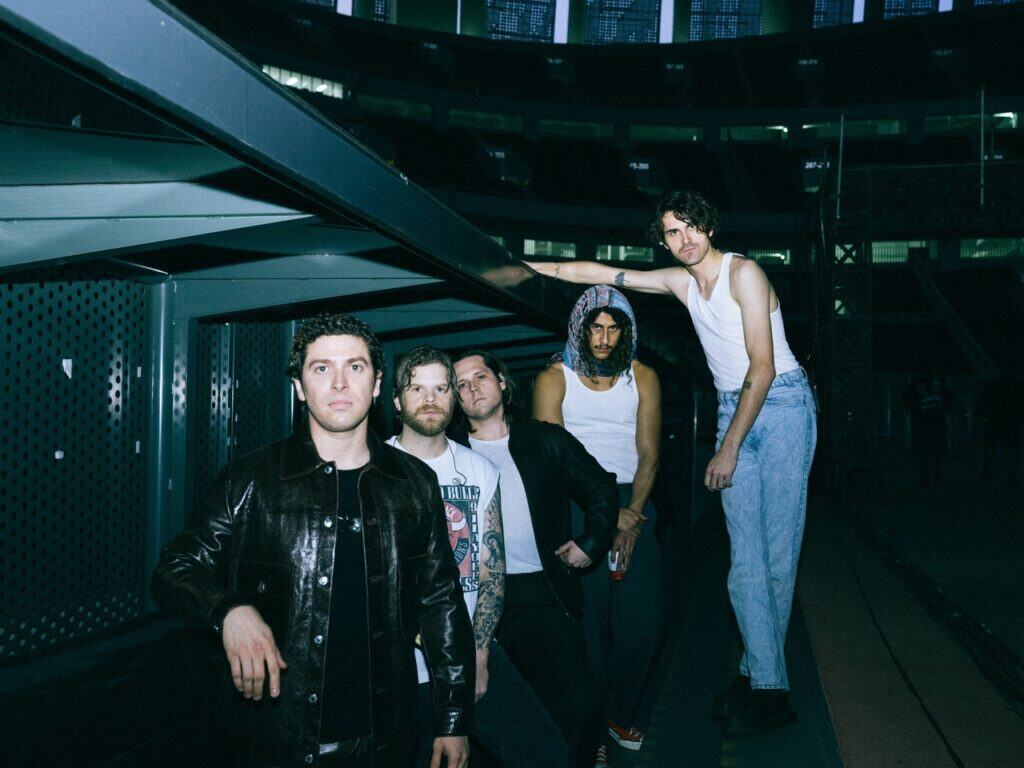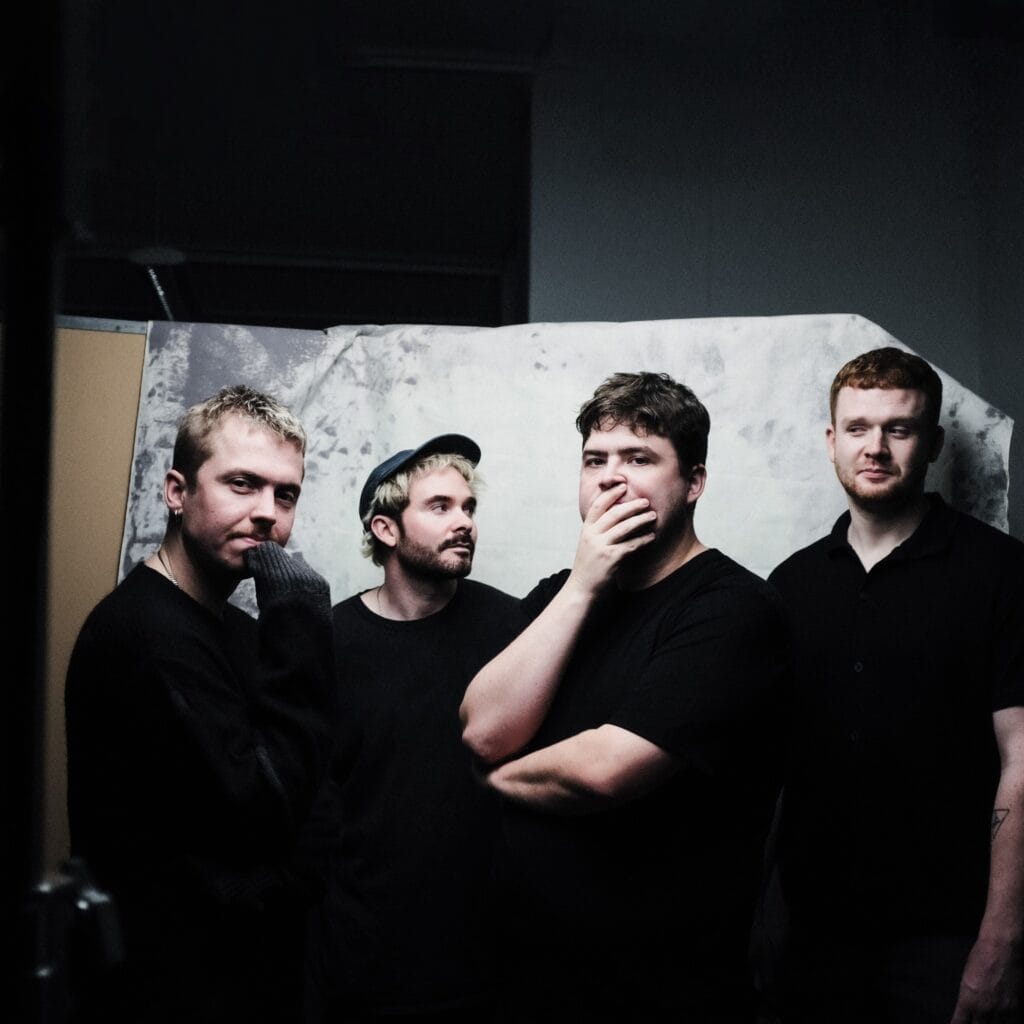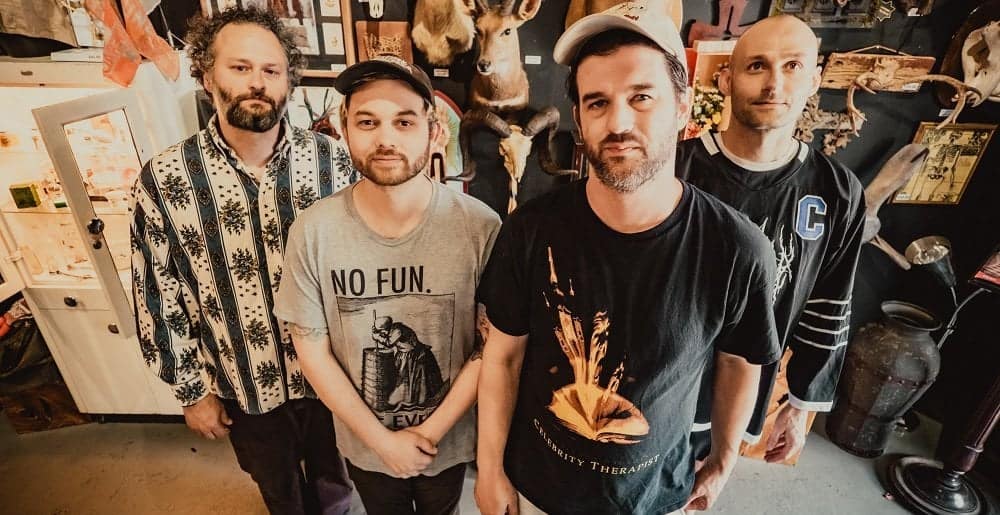SkinjoB is one of the most well-established acts in the UK EBM scene currently. After forming in 1991 with Andy Manns, where they set out to produce “post modern industrial dance” and now the solo project of Fitz (backed by Suzannah live), SkinjoB have been a permanent fixture of the UK scene. We managed to catch Fitz, and talk about what the future looks like for his project.
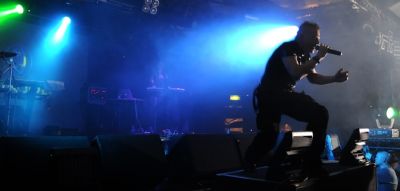
“Ultimately, there is no right or wrong way to make music”
S] How are you today Fitz?
F] Great thanks – hope you are too.
S] So, “Elitist Obscure Electronica” – Any reason for the tagline?
F] A few years ago I won a remix competition for XPQ-21 (twice) but as most artists will tell you, we spend at least some of our time seeking out reviews to see how we are doing and what people think of our work; I found a review of the CD that referenced one of my remixes and referred to it as something along the lines of ‘and we have the usual elitist obscure electronica version‘ which I found amusing and it kind of stuck with me – it was a potential title for the album (perhaps in the future…) but it’s just something I use to describe our genre, mostly out of self-depricating jest. It’s my goal to get it listed as it’s own genre, purely for my own amusement. I don’t take myself too seriously as you may gather.
S] The name, SkinjoB. Obviously a reference to ‘Blade Runner’. Would you say in that case that you’re influenced by Sci-fi cinema? And which film or TV series really does it for you?
F] Oh, I’m definitely a fan of sci-fi. ‘Blade Runner‘ (The Final Cut, naturally) is a masterpiece, but I’m a fan of anything ‘clever’ or based around perception of reality. ‘Primer’ is an example of the sort of thing I like, but then I also liked ‘The Matrix‘.
I don’t actually have a TV license as I don’t watch TV – for ten years or so now, but I’m quite into ‘V‘ and Moffat’s ‘Doctor Who‘ at the moment. I’m definitely influenced by the concept of our personal realities and what it means to have them tested, broken and altered. It is not possible to see the extent of one’s reality from the inside, and so for example, how do we know we are even sane? Take the character of Decker in ‘Blade Runner’ for example – he spends the whole time chasing the Replicants around while the whole time it turns out he doesn’t know that he is one himself. Thinking about it, it might be more accurate to say I like reality-fi’.
S] You’ve been around since 1991. What was the scene like in those days, was it any different to how it is now?
F] Basically in the north where I grew up there was not much of a scene that I was exposed to. Sure there were goths into The Cure and so on, but the EBM and industrial crowd were only really just starting to form outside of London I think. I do recall never really being impressed with any of the mainstream music I was exposed to, and I found myself gravitating towards Depeche Mode which was as good as I found at the time that was electronic, however Andy Manns (co-founder and ex-member of Skinjob) got me into Nine Inch Nails, Alec Empire and so on, and I remember the day vividly when another friend randomly gave me a cassette tape with Nitzer Ebb and Skinny Puppy on it which I was blown away by. It was literally a case of ‘where has this been my whole life?’. It was on going to Slimelight in 1995 that I got my first real taste of an alternative ‘scene’ which was fascinating, but back then I wasn’t really part of it, never having been exposed properly to the culture properly before and it was literally a whole new world. I just knew it felt like home, and I got into one of my all time favourite bands Front Line Assembly as a result.
S] How do you feel the scene has changed and progressed over the years?
F] I think the main difference is it’s much more ‘out’ these days and not so much underground as it once was, and I think this is partly due to MTV and it’s promotion and commercialisation of the ‘alternative’ genre in the early 90s; you have to do a lot more to surprise these days. We definitely have seen a lot of diversification, firstly between acoustic and electronic, leading up to now where we have literally dozens of sub-genres and sometimes entire festivals that cater to them (such as Germany’s Maschinenfest for example). Fashion has also changed as much as the music, again becoming commercialised, and it fascinates me that (certainly in many cases) one can look at the way someone is dressed and make an educated guess as to the genre of music they are into; the music is part of a complicated personal cultural identity along with a relationship with an artist.
It’s also now a lot easier to create your own music which results in a situation where it sometimes feels that everyone in the scene has a project, but it also means there is no shortage of upcoming bands. We sometimes get people literally running on stage after shows to get a look at our laptop to see what we are using – (we use Ableton Live on stage incidentally, if anyone is wondering) but that’s loaded up with software synths and samples for the live show. I don’t use it in the studio.
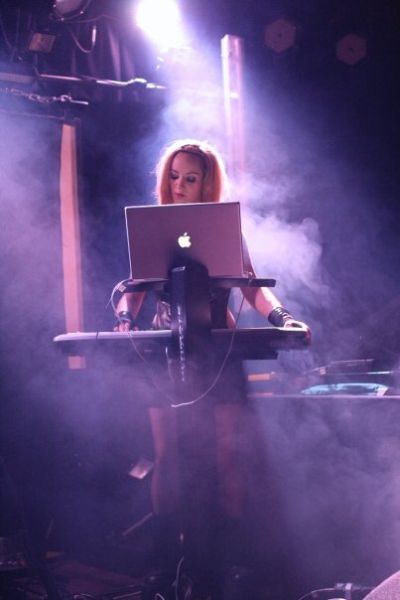 S] What’s it like being one of the “old guard” of the scene? Do new bands look up to you and ask for advice?
S] What’s it like being one of the “old guard” of the scene? Do new bands look up to you and ask for advice?
F] Yeah occasionally – things are very different these days though which reflects the advice. For example back in the early 90s if you wanted to record anything ‘properly’ you had to spend a lot of money in a proper studio which basically excluded anyone except extremely rich hobbyists and signed artists from anything serious (is partly why we never properly put anything out back then apart from back bedroom recorded demos which we were never happy with). Back then it was all ‘who you knew’ or who would be prepared to gamble money or studio time on someone’s ideas.
These days I mostly get asked what DAW (Digital Audio Workstation) I recommend or ‘where to get free [pirate] software’ (incidentally I buy everything I use and so should everyone else!). It’s important to note that while the cost of producing an album has fallen significantly, the ‘pro’ software required to get professional results is still quite expensive, hence the attraction of piracy. We are starting to see some good open source software which might eventually end up changing things. Ultimately, there is no right or wrong way to make music – basically experiment but don’t copy anyone; if the result sounds good, you won.
S] You are certainly in demand for remixes. Any bands you have particularly enjoyed working with and remixing?
F] Thanks – sadly, remixing is probably not as glamourous as it perhaps appears – it’s quite normal to never even meet the band in question but only to swap files over the internet (and sometimes only dealing with their label). Having said that, I think I’ve met or know personally everyone I’ve remixed, with the exception of Cylab.
I think the XPQ remixes were probably the most eventful, namely because out of the choice I was given; ‘Beautiful‘ was an option which is an amazing song – naturally I started work on that, but then it was ‘strongly suggested’ that I don’t do that one because ‘everyone was doing it’, and I should do ‘Rockin’ Silver Knight‘. I really wanted to remix ‘Beautiful‘ and had put a bit of time in on it so suggested the only solution was I do two remixes. ‘So long as they are good‘ they said; ‘Don’t worry!’ I replied then sat with my head in my hands for while thinking ‘what have I just gotten myself into?’ I pulled them both off but sadly ‘Beautiful‘ ended up being rushed and suffered as a result. Then I saw the album – two remixes of ‘Beautiful‘ (SkinjoB and Funker Vogt) and five of Rockin’ Silver Knight. Out of the five however, mine was the only one that ended up on the EP in the German DAC chart so I’m not complaining.
S] Any bands you feel that are coming out of the UK at the moment that really have what it takes to cross-over and go international?
F] The Ladder from Manchester I think are probably the upcoming synthpop band to watch at the moment. No doubt there are more but they caught my ear. They have good production and seem to be liked by the audience. The scene in Europe is huge compared to the UK and it’s not too hard to get European shows so long as you have a professional attitude and prepared to work with promoters on deals. We are fortunate in this country to have fathered some of the biggest names in electronic music, and I think that counts for something with foreign promoters. To quote And One from ‘Computerstar‘: ‘England hat musik erfunden fur Dich!’ [England invented music for you].
S] Having been around in the scene for, well, 19 years, what fond memories of this whole trip really come to mind?
F] 19 years. Blimey. I think the main thing for me is coming from literally feeling that there was no interest at all in electronic music or the sort of sound I was looking for, and to finally see it becoming popular, thus vindicating my early attempts. Also I was no stranger to studios having recorded with other bands, but the thought of being able to record my own electronic album was always so financially out of reach I had kind of given up as I was not from a rich background by any means, and was always very wary of selling my soul to a label (read those contracts carefully kids!).
What happened though, was digital recording and the associated computers became so powerful yet relatively cheap, we could literally build our own studios, albeit in piecemeal fashion. Also, I finally got to realise the sound I think we originally wanted – we spent literally years in rehearsal rooms experimenting but never finding what we were looking for (I have old tapes I really should dig out… or perhaps I really shouldn’t). To do then what I can do now in my studio was simply unimaginable. I used to lug a 12″ black and white TV to rehearsal rooms along with a Commodore Amiga, just to play some samples – laughable now.
Another major factor I think was putting out a demo EP in 2007 then discovering that it entered the Dutch Underground Chart (DUC) at number one. That was a serious ‘WTF’ moment. I honestly thought it was a mistake or I was reading it wrong, but it was true.
The next year we got to play Summer Darkness and Infest festivals, both milestones in the career so far. I honestly thought there would be about 50 people tops at Infest when we went on stage (you couldn’t see very well from back stage how many people were there through the curtains) but walking out and seeing the venue filled to the point people were standing on the stairs was amazing.
S] Well, thanks for answering my questions. Anything you’ve got coming up the public should know?
F] You’re welcome – our big news is our album ‘Selfish Discipline‘ is nearing completion and we are play-testing it at Analoguetrash in Manchester next week on July 3. I’ve spent a lot of time on this and it will hopefully be mastered and finally released in the next month or two, but I’m not going to rush it now that it’s so almost ready. You can see us live at DV8Fest in York before Noisuf-X on July 18, and the next night we support Front Line Assembly in Glasgow on July 19.
For more information visit the official MySpace.

